Supporting Female Farmers in Nepal with Innovative Biofertilizer
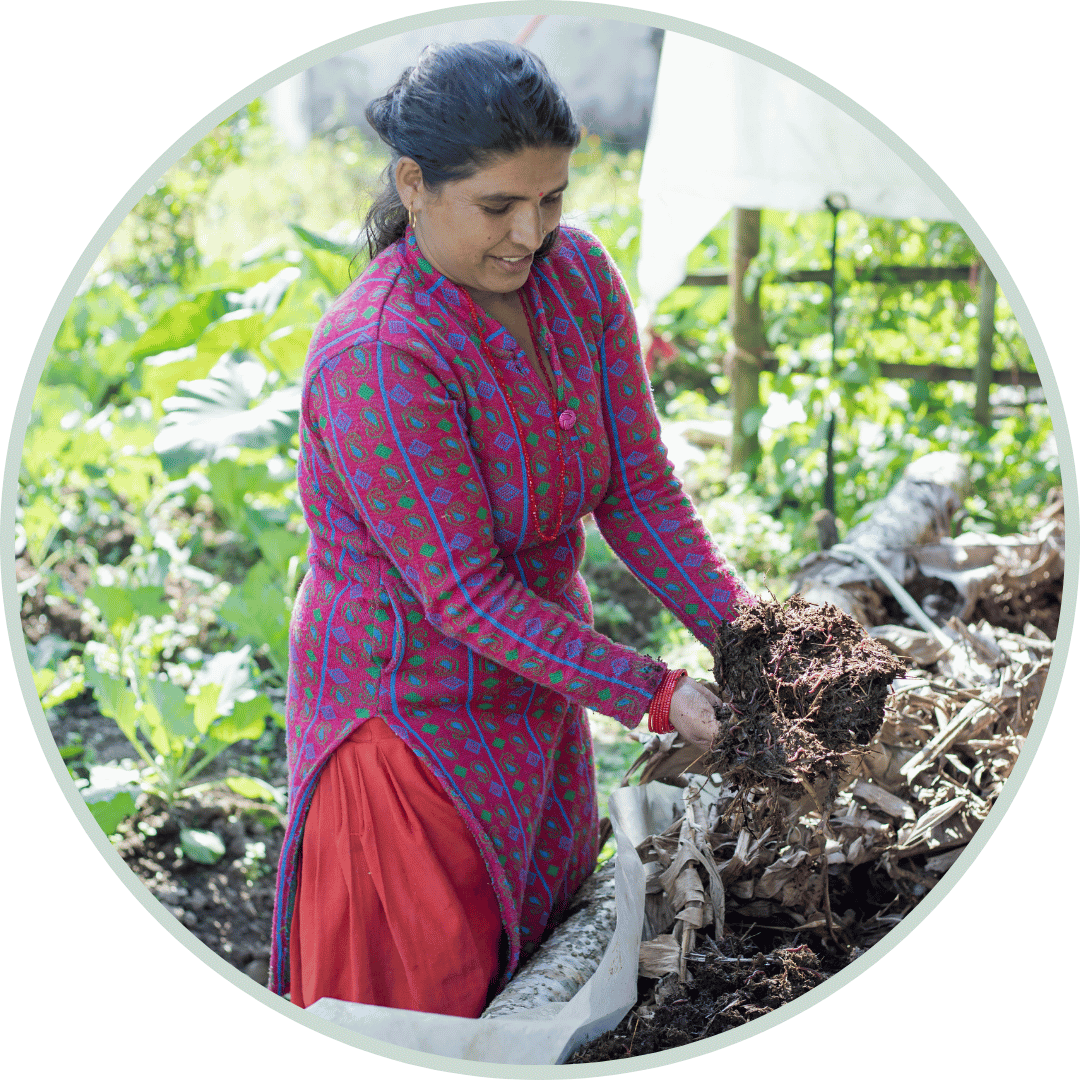
Climate-resilient and sustainable agriculture is essential for ensuring food security and protecting the environment in an era of climate change. In Nepal, women are driving innovation and transforming agriculture through Tricho-vermicompost, a biofertilizer that boosts yields by 15% and fights soil diseases. We support iDE in Nepal to reach 5,000 households by 2025, producing 640 tonnes of compost to help farmers grow more, earn more, and build resilience.
The effect of climate change on agriculture
To feed its growing population under a changing climate, Nepal is intensifying its agricultural production. As a result, the traditional roles of women in agriculture are slowly changing, with women increasingly taking part in farm decisions.
Agriculture provides important opportunities for women to earn an income. But with off-farm sources of income competing for labor, the agriculture sector has been facing labor shortages. Nepal's agriculture is also becoming more feminized as young men seek jobs in cities and abroad. Agricultural worker shortages have resulted in poor land management and underuse of cultivable land. Input-intensive farming has caused numerous negative consequences, such as increased soil acidity, deteriorated soil and water, increased pest resistance, drought, and flooding, leading to diminished crop yields and nutrient quality, ultimately threatening food security.
The World Food Programme warns that by 2050, the risk of hunger and malnutrition could rise by 20 percent. An estimated 80 percent of those most at risk of crop failures and hunger due to climate change are in South Asia, Southeast Asia, and Sub-Saharan Africa. Moreover, developing countries in the Asian Pacific (APAC) are likely to face the highest reductions in agricultural potential due to climate change.
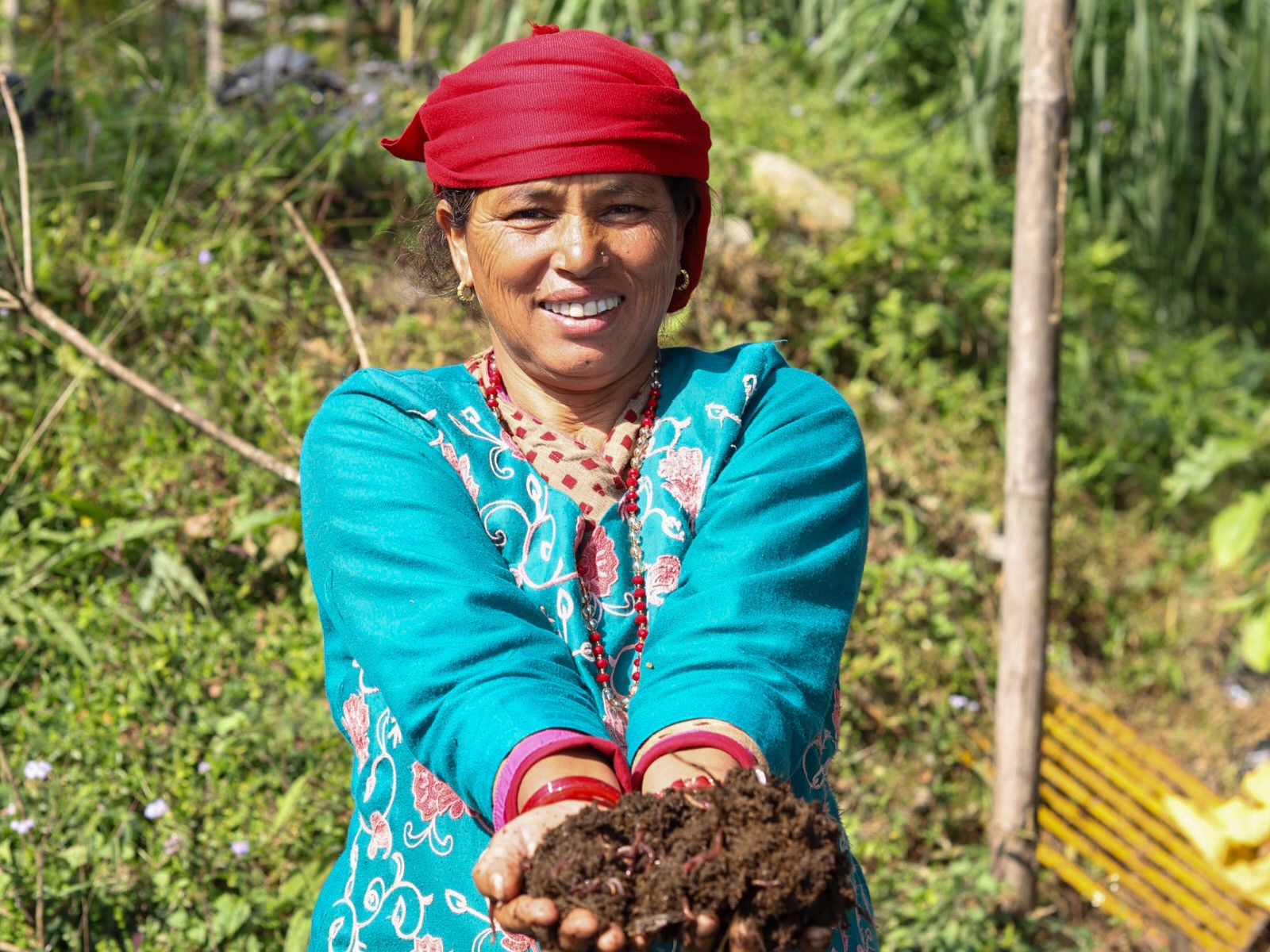
A farmer showing her organic worm compost.
Climate-smart innovations
To counter these challenges, climate-smart innovations can improve incomes for female farmers in Nepal and enhance food security, aligning with Sustainable Development Goal 2: Zero Hunger by 2030.
iDE, a global organization committed to eradicating poverty through entrepreneurship, is working to blend traditional ecological knowledge with modern agricultural techniques for smallholder farmers in Nepal. Since 1992, iDE has been fostering prosperity in Nepal, building value chains and innovative business models in key sectors such as agriculture, nutrition, market system development, water, sanitation, climate resilience, and gender equality. Their approach aims to catalyze the creation of beneficial, cost-effective products and services that contribute to sustainable growth and improved well-being.

“In 2021, iDE Nepal piloted a new biofertilizer innovation with the Surkhet District Collection Centers, developing a high-quality organic worm compost (vermicompost) from raw farmyard manure and crop residues. Early results show that the introduction of a beneficial fungus (Trichoderma Viridae) into the compost results in less soil-borne disease and 15 percent greater crop yields.”
Lalit Sah, Climate Resilient and Agriculture Lead at iDE Nepal
The production of this type of compost is less labor intensive and very appropriate for women to take up as an enterprise because they can start with minimal investment, it requires limited space and land and it is relatively easy to manage and generate income from their homes while managing household responsibilities. Through this business, women learn valuable skills in safe food production, waste management and small - scale business operations with enhancing their confidence and decision making power. This will provide an economic opportunity for the women involved, along with the increase in vegetable production and soil quality with the optimized use of biofertilizers.
“Today, farming communities who engaged in this pilot are only using 30-40% of the fertilizer they produce. Given the shortage and high-demand for biofertilizer among small-scale vegetable farmers, which opens up significant opportunities for local enterprise development. With the rising demand for biofertilizers among small-scale vegetable farmers who face a chronic shortage of chemical fertilizers, these communities are well-positioned to sell their surplus compost. This not only meets the local demand for nutrient-rich fertilizers but also supports a shift toward safe, organic vegetable production, which has notable health and nutritional benefits,” Lalit Sah adds.
iDE Nepal piloted this fertilizer solution with 2,013 farmers in the Surkhet District, producing 68.06 tonnes of compost, while creating 22 jobs.
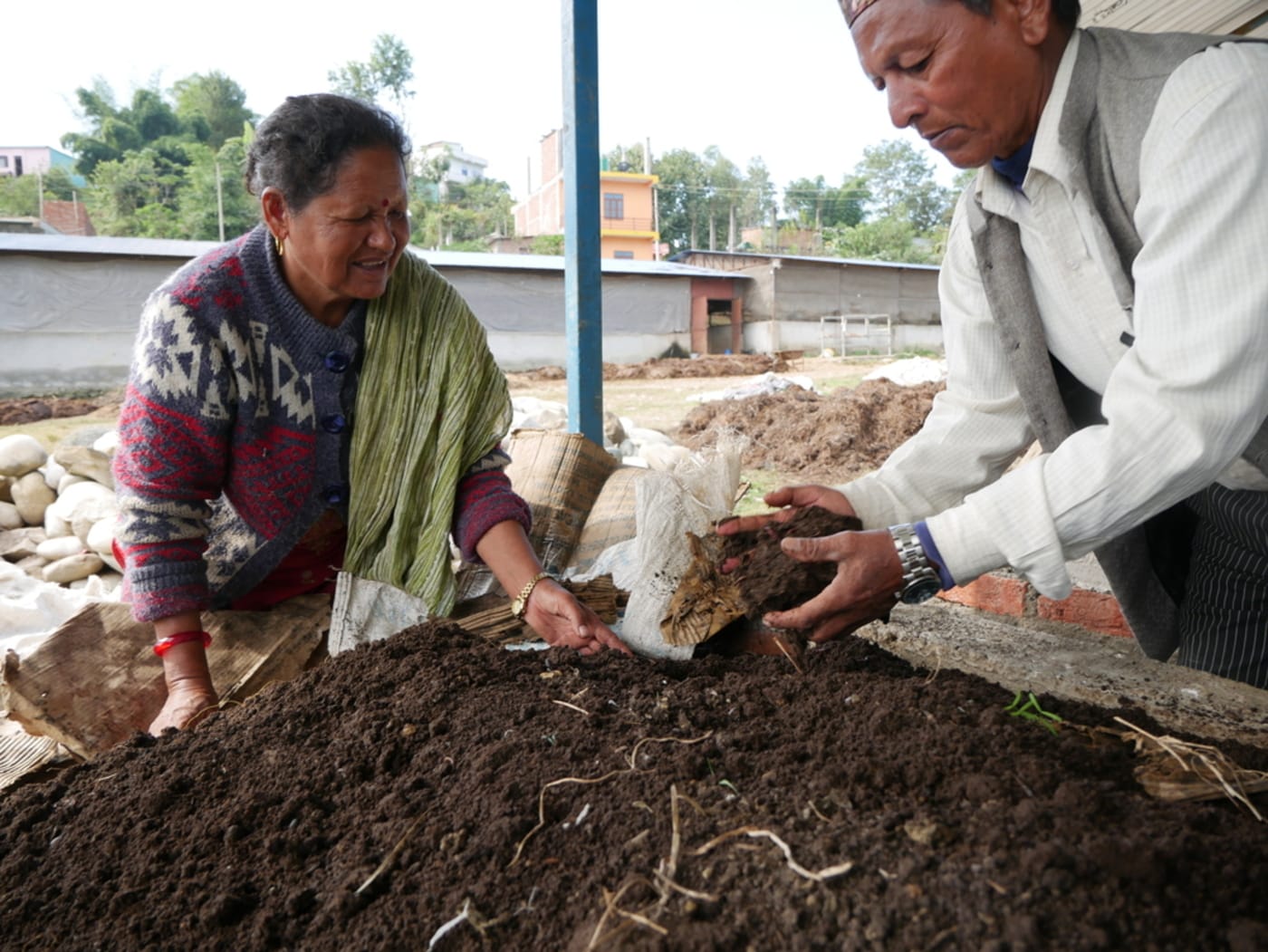
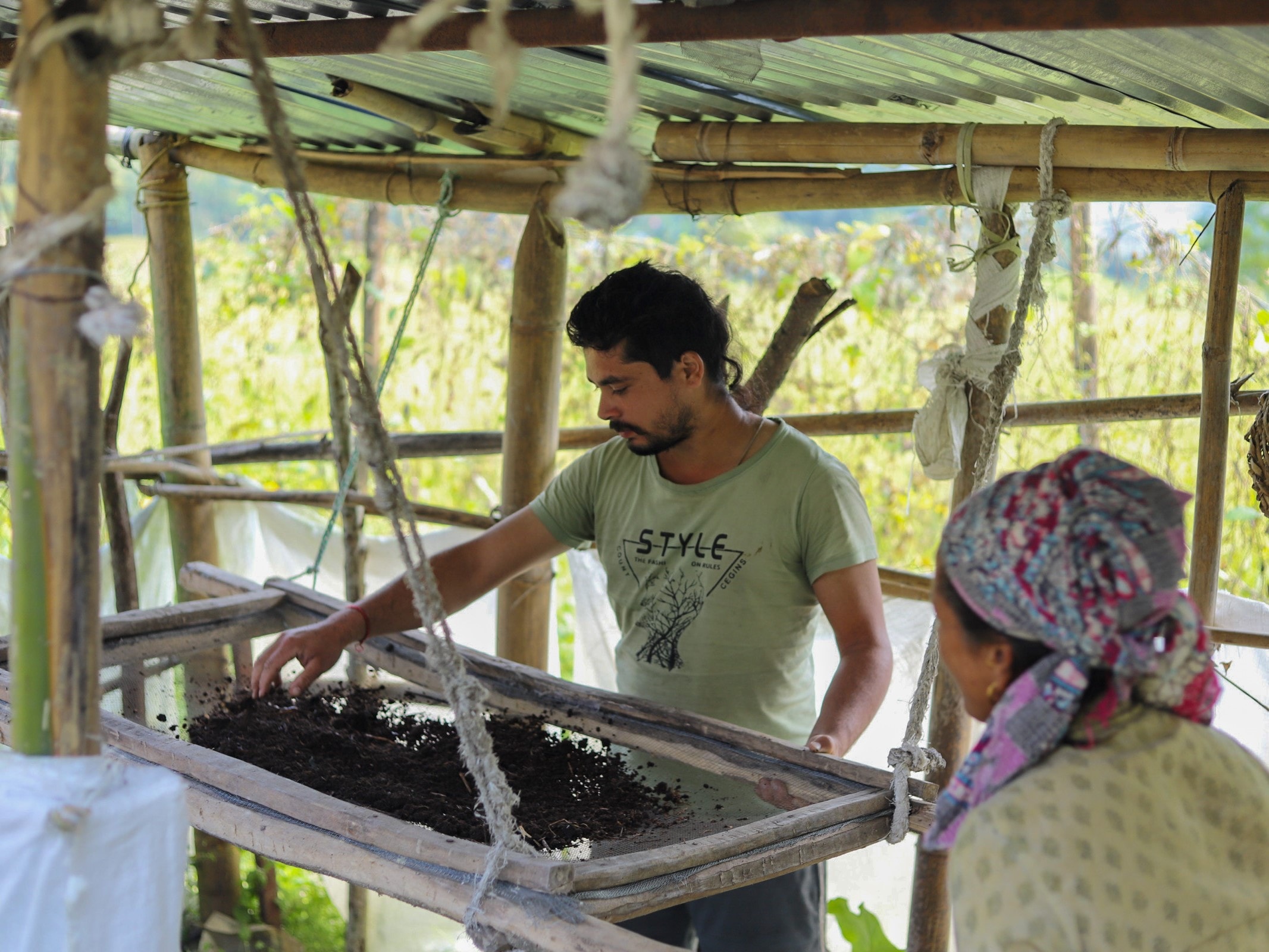
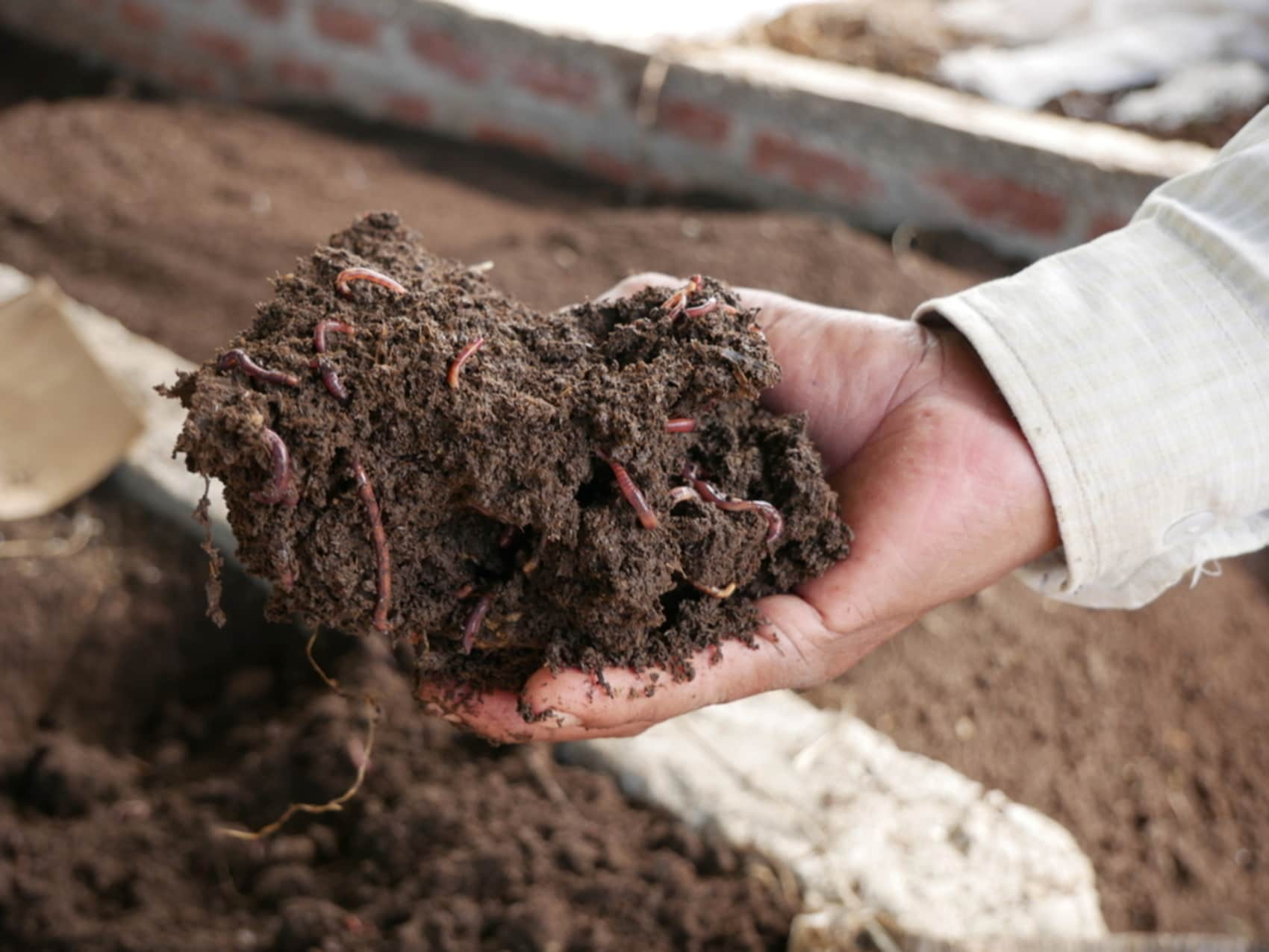
Scaling the biofertilizer solution
Building on the program’s initial success, iDE is set to scale up the biofertilizer initiative in 2025 by establishing eight community-led enterprises that will produce about 640 tonnes of organic worm compost each year.
"With support from Bayer Foundation, this expansion will directly involve at least 400 farmers in compost production, and we aim to reach over 5,000 households with training or access to local organic fertilizer, enabling them to grow more vegetables and improve household nutrition. This partnership is expected to boost farmers' income by around $300 per year from compost sales and safe vegetable production, empowering local farmers and supporting sustainable, profitable agricultural practices,” Lalit Sah adds.
Supporting Female Farmers in Nepal with Innovative Biofertilizer



